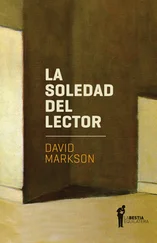What I was signing was an image of myself, naturally.
Should anybody else have looked, where my signature would have been was under the other person's image, however.
Even in late spring, from the ruins at Hisarlik, one can still see snow on Paris's mountain.
There is a painting in the Louvre of Helen and Paris, by the way, by Jacques Louis David, which is perhaps the only convincing representation of Helen that I have ever seen.
As a matter of fact the painting itself is silly, since Helen has all her clothes on while Paris is wearing only sandals and a hat.
Still, there is a wistfulness in Helen's face, that suggests that she has been thinking about a good many things.
I am quite taken by the idea of Helen having been thinking about a good many things.
Doubtless I would never have signed that mirror had there been anybody else to look, on the other hand.
Though in fact the name I put down was Jeanne Hebuterne.
I am also still staining, incidentally.
At a guess, I would say it is nine or ten days, now.
I would appear to have been failing to indicate a good many more of the latter too, as it happens.
Even if that has nothing to do with the staining, which as I have said is scarcely unusual.
Any more than would be waiting for some months without getting my period at all.
Although I have had to go to the spring again, to wash fresh underpants.
Ah, me.
Naturally I did not wash fresh underpants. Naturally the underpants were not fresh until after I had washed them.
In either case I have also left everything outside once more, since there is always something pleasurable about changing into garments that are still warm from the sun.
Conversely I am not extraordinarily happy about this new habit of skipping days so frequently, to tell the truth, even if I am less than positive why.
Although possibly it has something to do with the question I was writing about yesterday.
By which I perhaps mean a day or two before yesterday.
Nor am I certain that I remember the question very clearly.
Or perhaps I did not define it that well.
Although doubtless all I have in mind is that if so many things would appear to exist only in my head, once I do sit here they then turn out to exist on these pages as well.
Presumably they exist on these pages.
If somebody were to look at these pages who could understand only Russian, I have no idea what would exist on these pages.
Not speaking one word of Russian myself, however, I believe I am able to state categorically that the things which had existed only in my head now also exist on these pages.
Well, some of such things.
One can hardly put down everything that exists in one's head.
Or even begin to be aware of it, obviously.
In fact I have no doubt that I have more than once written things that I did not even remember I remembered until I wrote them.
Well, I have commented on that.
Though as a matter of fact there are also certain things that one remembers while one is writing that one did not remember one remembered but does not happen to put down, either.
For instance when I was writing about the fact that Rembrandt and Spinoza had lived in Amsterdam at the same time, which I had learned from a footnote, I suddenly remembered from a different footnote entirely that when El Greco had lived in Toledo such people as St. Teresa and St. John of the Cross had lived there, too.
Even though I remembered that, however, I did not put it down.
Basically my reason for not doing so may have been because I do not know one solitary thing about either St. Teresa or St. John of the Cross.
Except obviously that they were both in Toledo when El Greco was in Toledo.
Although there is more to what I am talking about than this.
Still another person who lived in Toledo when El Greco lived in Toledo was Cervantes, except that I had a different sort of reason for not bringing up Cervantes just now when I brought up St. Teresa and St. John of the Cross.
When I brought up St. Teresa and St. John of the Cross it was because, as I said, I had thought about them in connection with El Greco at the time when I was thinking about Rembrandt in connection with Spinoza.
As I also said, however, the fact that El Greco may have known St. Teresa and St. John of the Cross was something I did not remember I remembered until the very moment in which I was writing what I wrote about Rembrandt and Spinoza.
The fact that El Greco may have also known Cervantes, on the other hand, is something I did not remember I remembered until all of these pages later, when I was finally writing what I had remembered but had not put down about El Greco earlier.
This is not really that complicated, although it may seem to be.
All it actually means is that even when one remembers something one did not remember one remembered, one may have still no more than scratched the surface in regard to things one does not remember one remembers.
Although as a matter of fact I believe I did remember Cervantes before too, even if in that case it may have only been in connection with that castle.
Then again, perhaps it was Don Quixote I remembered, what with the castle having been in La Mancha.
The title of the book about Don Quixote being Don Quixote de La Mancha, of course.
Anything that El Greco and Cervantes may have said to each other in Toledo would have been said in the same language as the title also, presumably.
Even if El Greco may have preferred Greek. Or whatever language they spoke on Crete, which was where he was actually from, in fact.
This is of course assuming that even if El Greco and Cervantes did not know each other very well, certainly they would have at least begun to nod in passing, after a time.
And naturally next to exchange amenities.
Buenos dias, Cervantes.
Buenos dias a usted, Theotocopoulos.
Well, and doubtless they would have exchanged similar amenities with St. Teresa and St. John of the Cross eventually, too.
Possibly all of this would have happened in some local shop or other, such as the neighborhood pharmacist's, say.
Even if one doubts that either of the latter two would have been called Saint yet, naturally.
Well, or that St. John of the Cross would have been called of the Cross by then, either.
Buenos dias, Saint Teresa, or, Buenos dias, John of the Cross, surely being a little clumsy for in a drugstore in either event.
Or for while waiting on line at the cigarette counter, certainly.
Still, all of these people always remaining just as equidistant from each of the others as everybody in Taddeo Gaddi's studio was, of course.
Except that they are now undeniably equidistant from me as well, because of being on these pages as opposed to being only in my head.
I think.
So that even if I were to unexpectedly think about somebody else I had not thought about for the longest time, such as, oh, Artemisia Gentileschi, let me say, the same rule would apply.
Although something I have also just incidentally realized is that I was probably wrong, a little while ago, when I said it was Zeno who had proved the other rule, about the hypotenuse of a circle.
Possibly it was Archimedes who proved that. Or Galileo.
Although what now more truthfully surprises me is that I could have written this many pages without having mentioned Artemisia Gentileschi to begin with.
Or that any woman artist could.
In fact Artemisia is perhaps the one person one would call Saint at a cigarette counter or anyplace else without feeling clumsy in the least.
So she was raped too, naturally.
At only fifteen.
But heavens, what a painter. In spite of what kind of a world she had to face, that many years ago.
Читать дальше












